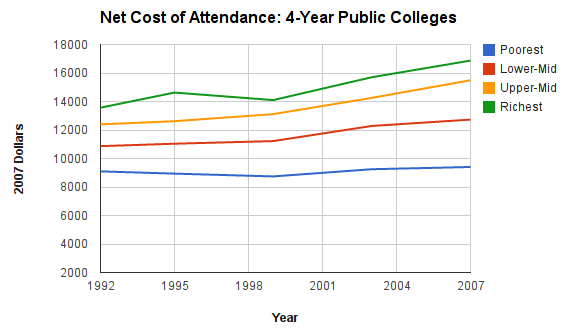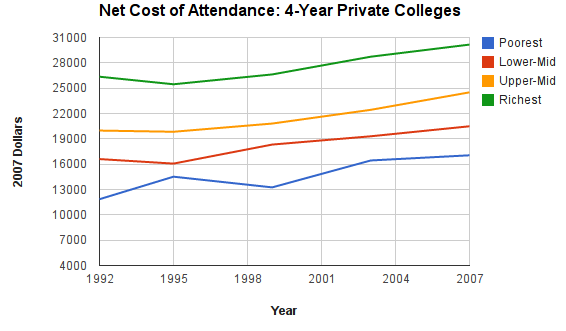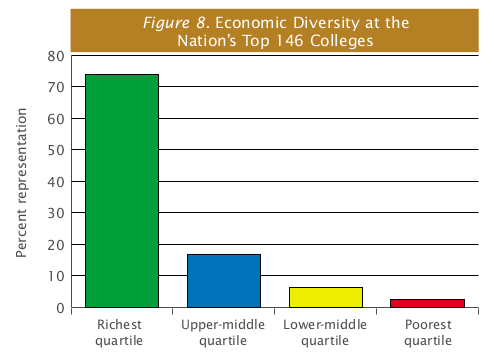In my post yesterday, I detailed the actual cost of attending college broken down by students’ household income. You see, colleges do not charge all students the same rate. They charge rich students more and poor students less. The difference is considerable too. For both private and public schools, poor students pay just 55-57 percent of what rich students do.
One of the proposals for dealing with college financing is to just use public funds to pay for college. That way attending college would be free. Relative to our current price discrimination system, ask yourself what the distributive impact of such a policy would be. Who stands to gain the most?


If the state stepped in to cover the complete cost of attending college, poor public school students would effectively receive a benefit worth $9,400/yr while rich students would receive a benefit worth $16,900/yr. If the state did the same for private schools, poor students would get a benefit worth $17,000/yr while rich students would get a benefit worth $30,200/yr. So relative to the status quo, the rich would get way more out of that new policy than the poor would. That is, the policy would increase overall inequality.
But it gets worse. It’s not just that an across-the-board free tuition regime would disproportionately benefit rich students; it would also just disproportionately benefit rich young people. Not everyone goes to college, and those who do are from heavily disproportionately rich backgrounds and also tend to gain admission to the most expensive colleges.

Given the current circumstances of higher education, an across-the-board free tuition policy would be a huge boon for rich youth for three separate reasons. First, rich kids are more likely to attend any college than poor kids are. Since those not attending college would get nothing from a free tuition regime, the class of people getting nothing would be disproportionately low-income. Second, rich kids are more likely to attend the most competitive colleges than poor kids are, which happen to be the most expensive. Finally, in any given college, rich kids pay more tuition than poor kids already. So, this policy would be an extremely disproportionate score for rich students and their families. Given that, perhaps we should consider other financing regimes (e.g. universal income-based repayment) instead.